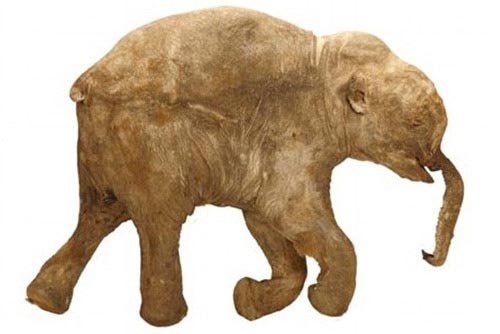伦敦展出42000年前的长毛象宝宝标本
伦敦自然历史博物馆公开了一样新的吸引公共眼球的东西:一件保存完好的42000年前的长毛象宝宝标本。
The Natural History Museum of London has unveiled its new star attraction: a perfectly preserved baby mammoth who died 42,000 years ago. Scientists regard the specimen as the most fully preserved mammoth ever found.
"Lyuba" is a baby mammoth who roamed across the vast stretches of Siberia 42,000 years ago. She is 85cm tall and 130 cm long, a little larger than a dog. Lyuba was named after the woman who discovered her, a reindeer herder’s wife, and her name means "love" in Russian. Rather than decaying over time, her body froze and was preserved for around 42,000 years, until a chance discovery in 2007. The last mammoths to have walked the earth lived as recently as 4,000 years ago.
For experts like Professor Adrian Lister, Lyuba is a once in a lifetime discovery.
Lyuba is thought to have been healthy when she died, so experts have been able to use her remains to research mammoth biology and behaviour. According to Lister, they have been comparing her physiology with that of modern day elephants, and they have made many interesting findings. The modern day Asian elephant and African elephant have similar DNA blueprints to the mammoth, but there are also significant differences.
'Mammoths: Ice Age Giants' will open Friday at the Natural History Museum of London and run until early-September.

The Natural History Museum of London has unveiled its new star attraction, a perfectly preserved baby mammoth which died 42,000 years ago.







